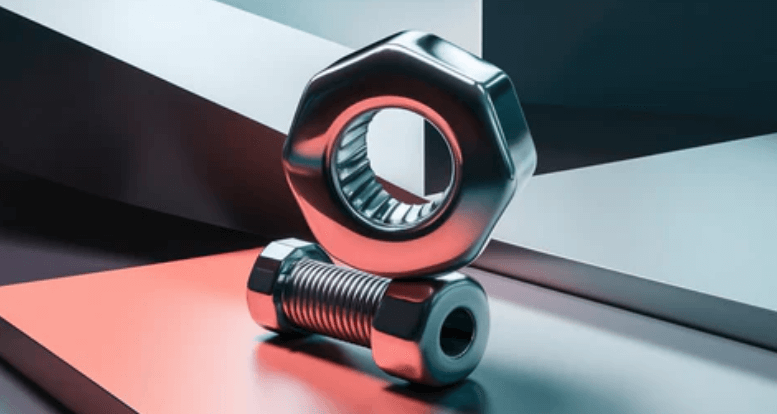How to Choose the Best Custom Bolts for Your Projects

Introduction to Custom Bolts
Custom bolts are essential components used in a wide range of industries, including construction, automotive, aerospace, and industrial machinery. Unlike standard bolts, custom bolts are specifically designed to meet unique specifications, ensuring optimal performance and safety. Partnering with the right manufacturer allows businesses to acquire fasteners that fit their precise requirements while maintaining high quality and durability.
The Importance of Custom Bolts in Modern Industry
In many industrial applications, off-the-shelf bolts may not provide the strength, size, or material properties needed for specialized projects. Custom bolts allow engineers and project managers to select specific materials, threading styles, lengths, and diameters that align with design and safety standards. This ensures reliability, reduces the custom bolts risk of failure, and enhances overall product performance.
Benefits of Using Custom Bolts
Tailored Solutions for Specific Applications
One of the key advantages of custom bolts is the ability to receive products designed specifically for unique needs. Whether it is for high-load machinery or specialized construction projects, manufacturers can create bolts with precise dimensions, threading, and materials that match the requirements of each application.
Improved Quality and Durability
Custom bolts manufacturers often implement advanced production techniques such as CNC machining, heat treatment, and precision threading. These methods enhance the strength, durability, and consistency of each fastener. High-quality custom bolts reduce maintenance costs, minimize downtime, and ensure long-term reliability.
Versatility Across Industries
Custom bolts are used in a variety of industries and applications. From heavy-duty machinery in manufacturing plants to structural components in buildings, custom bolts provide versatile solutions. This adaptability makes them a critical component for businesses looking to maintain high standards across multiple sectors.
Quality Assurance in Custom Bolts Manufacturing
Ensuring consistent quality is essential for any custom bolts manufacturer. Reputable companies follow strict quality control procedures, including material testing, dimensional inspections, and mechanical performance evaluation. Certifications such as ISO 9001 demonstrate adherence to international standards, assuring clients that the bolts they receive meet industry requirements.
Challenges When Working With Custom Bolts
Communication and Specification Accuracy
Clear communication is essential when ordering custom bolts. Misunderstandings regarding dimensions, materials, or threading can lead to production errors. Providing detailed technical drawings and specifications helps the manufacturer deliver bolts that meet the exact requirements.
Logistics and Delivery Considerations
Sourcing custom bolts can involve logistical challenges, particularly for large or international orders. Manufacturing lead times, shipping processes, and customs clearance must be carefully managed. Working with manufacturers experienced in handling international shipments ensures timely delivery and reduces potential delays.
Protecting Intellectual Property
For businesses developing proprietary equipment or machinery, protecting intellectual property is critical. Reliable custom bolts manufacturers provide confidentiality agreements and secure handling of design documents to safeguard sensitive information.
See also: Age Verification in Florida: Navigating New Laws and Technologies in 2025
How to Select the Right Custom Bolts Manufacturer
Assess Production Capabilities
Before choosing a manufacturer, evaluate their production capabilities. A capable custom bolts manufacturer should handle both small and large orders while maintaining high-quality standards. Requesting samples, reviewing past projects, and visiting production facilities can provide insights into their expertise.
Verify Certifications and Compliance
Checking certifications such as ISO 9001 or ASTM ensures that a manufacturer follows internationally recognized quality and safety standards. Compliance with these standards reduces the risk of defective products and guarantees that bolts meet industry specifications.
Evaluate Customer Support
Strong customer support is crucial for smooth collaboration. Manufacturers that offer clear communication, timely updates, and assistance with technical queries help prevent misunderstandings and improve the overall production process.
Emerging Trends in Custom Bolts Manufacturing
The industry of custom bolts is continuously evolving with technological advancements. Automation, precision engineering, and environmentally friendly manufacturing processes are increasingly common. These trends improve efficiency, reduce material waste, and ensure higher quality in every production batch.
Impact of Custom Bolts on Industrial Success
Custom bolts play a significant role in maintaining structural integrity, machine reliability, and safety across industries. Businesses that invest in high-quality custom bolts reduce the risk of mechanical failure, increase operational efficiency, and achieve better project outcomes. Long-term partnerships with trusted manufacturers provide consistent supply and support for ongoing industrial projects.
Conclusion
Selecting the right custom bolts is essential for ensuring safety, reliability, and efficiency in various industrial applications. By carefully evaluating production capabilities, quality assurance practices, certifications, and customer support, businesses can form strong partnerships with manufacturers. As the industry continues to adopt advanced technologies and sustainable practices, working with trusted custom bolts manufacturers remains a key factor in achieving long-term success and operational excellence.




